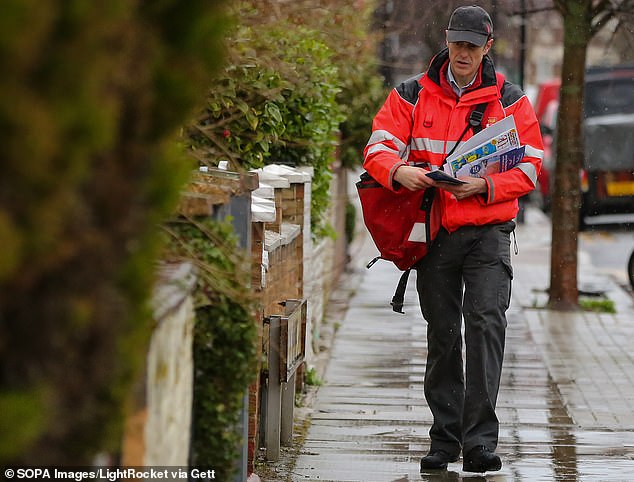‘Czech Sphinx’ Daniel Kretinsky’s £3.6bn investment for Royal Mail’s parent company has failed to win over the City, despite the company’s board agreeing to the deal.
Shares in International Distribution Services rose 4.3 per cent, or 13.8p, to 335p following the announcement, still below the offer price of 370p.
He noted that investors still don’t see it as a done deal, that regulators and politicians still need to be convinced, and that a new government may be in place within weeks.
Kretinsky, already IDS’s largest shareholder with a 28 per cent stake, had seen an initial proposal valuing the group at £3.1bn rejected last month.
But a higher valuation along with commitments from Kretinsky’s EP Group, including promises on jobs and the Universal Service Obligation (USO) to deliver mail across the UK at a single price, convinced the board.
Not convinced: Shares in International Distribution Services, owner of Royal Mail, rose 13.8p after news of the deal failed to convince the City.
Analysts remain skeptical, and the general election is likely to mean greater uncertainty over any government intervention in the deal and a national security investigation on the horizon.
Dan Coatsworth, investment analyst at AJ Bell, said: “The price has been agreed and recommended by the board, now comes the difficult part of getting the Government to approve the deal.”
“The big question is which political party will be in power to decide, given that the general election is only five weeks away.”
In principle, Chancellor Jeremy Hunt will not oppose the deal, although it would be subject to national security scrutiny.
Labour’s shadow business secretary Jonathan Reynolds said Labor would “take the necessary steps” to safeguard Royal Mail’s “undeniable identity and place in public life”.
Liberum analyst Gerald Khoo believes overcoming national security scrutiny would be a “major hurdle.”
Khoo added: ‘While the commitments are important, they cannot cover all contingencies and only apply for a period of up to five years.
“We still have to be convinced that this will be enough to secure the support of whichever government makes the decision.”
Khoo added that a review of the proposed acquisition “could be lengthy.” “Even if that were not the case, any decision would violate the pre-election ban on making long-term decisions that would tie the hands of the next government.”
The cash acquisition will be financed with 1.2 billion pounds of equity and around 2.3 billion pounds of debt, an EP executive told Bloomberg.
BNP Paribas, Citibank, Societe Generale and Unicredit provide credit lines.
The proposed acquisition comes as Royal Mail struggles to return to profitability amid falling letter volumes and after a period in which it has been rocked by labor disputes.
Privatized in 2013 at 330p, its shares have since had a torrid time, peaking at over 600p in 2018 and then sinking below 120p at the height of the Covid-19 lockdowns in 2020.
The group’s rebranding to IDS highlighted the contrasting results of loss-making Royal Mail and its sister company GLS, a European parcel operator.
Last week’s annual results showed Royal Mail made a loss of £348m in the year to the end of March, while GLS made a profit of £320m, leaving the group overall £28m millions of pounds sterling in the red.
The company has been pushing for an overhaul of its USO, saying it cannot meet delivery targets.
It has asked ministers and regulator Ofcom to allow it to reduce delivery requirements for second-class letters so that they can be delivered every two working days.

